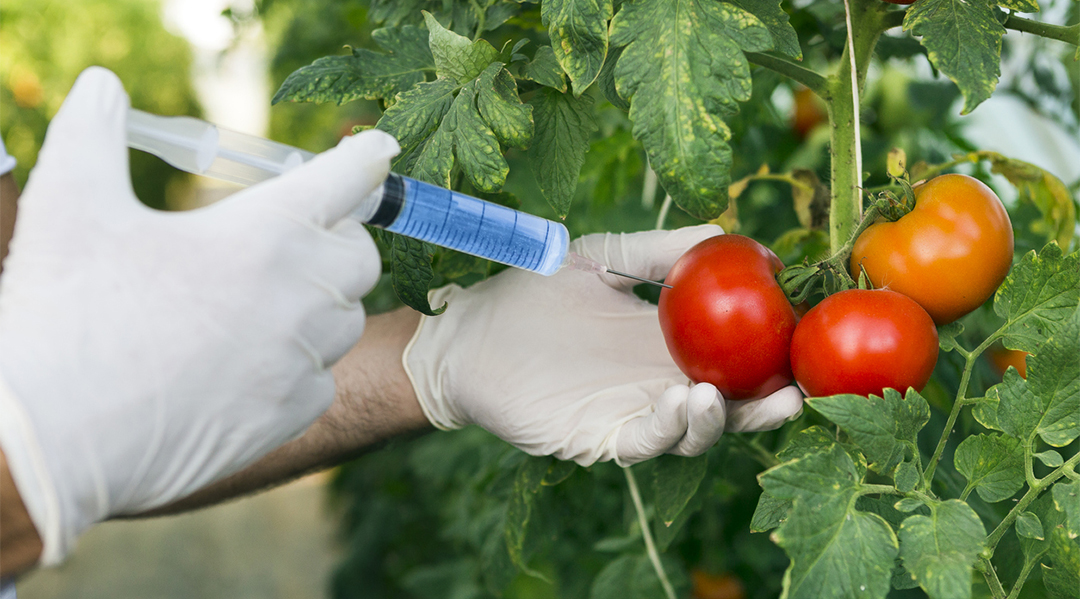Roundup Ready Soybean GMO Testing
The Roundup Ready soybean is one of the most widely used genetically modified organisms (GMOs) in agriculture. Developed by Monsanto, now owned by Bayer CropScience, this strain of soybeans has been engineered to tolerate glyphosate-based herbicides, allowing farmers to control weeds without harming the crop. This technology has revolutionized farming practices, particularly in regions where weed management is a significant challenge.
However, the presence of Roundup Ready soybeans can pose challenges for food safety and traceability. Testing for GMOs, including Roundup Ready soybean varieties, is essential to ensure compliance with regulatory standards and consumer expectations. This testing helps prevent contamination and maintains market integrity in both domestic and international markets.
In this service, we employ advanced molecular biology techniques such as polymerase chain reaction (PCR) and quantitative real-time PCR (qPCR) to detect the presence of the gene responsible for glyphosate tolerance. Our laboratory adheres strictly to internationally recognized standards, including ISO/IEC 17025, ensuring accurate and reliable results.
Our testing process begins with a rigorous sample preparation protocol that includes DNA extraction from seed samples or plant tissues. This step is critical in ensuring the accuracy of the subsequent PCR-based tests. Once the DNA is extracted, it undergoes amplification using specific primers designed to target the transgenic marker gene associated with Roundup Ready soybeans.
The qPCR method allows for precise quantification of this gene, providing a quantitative measure of the GMO content within the sample. This approach not only confirms the presence but also offers insights into the level of genetic modification, which is crucial for regulatory compliance and market transparency.
Our laboratory uses state-of-the-art equipment, including real-time PCR machines from reputable manufacturers like ABI (Applied Biosystems) and Thermo Fisher Scientific. These instruments are equipped with fluorescence detection systems that enable highly sensitive and accurate quantification of the target gene.
The results of our testing are reported in compliance with international standards such as ISO 17025, ensuring consistency and reliability across various jurisdictions. Our reports provide detailed information on the presence and level of Roundup Ready soybeans, along with recommendations for any necessary corrective actions.
Understanding the importance of this testing extends beyond mere compliance; it plays a critical role in maintaining consumer trust and market integrity. By providing accurate and reliable GMO test results, we contribute to the sustainable development of agricultural practices.
Why Choose This Test
Mandated by regulatory bodies such as the USDA and EU for import/export compliance.
Ensures traceability throughout supply chains, from farm to fork.
Aids in maintaining market integrity and consumer trust.
Facilitates compliance with international standards like ISO/IEC 17025.
Advanced molecular biology techniques for precise detection.
Use of state-of-the-art equipment from leading manufacturers.
Quality and Reliability Assurance
At our laboratory, quality assurance is paramount. We maintain strict adherence to ISO/IEC 17025 standards, ensuring that all testing procedures are accurate and reliable. Our team of experts follows standardized protocols for sample preparation and analysis, minimizing the risk of contamination or errors.
We employ rigorous quality control measures at every stage of the testing process, from sample receipt to final report generation. This includes regular calibration of equipment, validation of test methods, and participation in proficiency testing programs. Our commitment to excellence is reflected in our consistently high-quality results and impeccable reputation within the industry.
Our laboratory also participates in international proficiency testing schemes such as those organized by AOAC International (formerly known as AOAC) and ISO/IEC 17025. These programs provide an independent evaluation of our testing capabilities, ensuring that we meet or exceed global standards.
We continuously invest in staff training and the latest technological advancements to stay at the forefront of GMO detection technology. Our experts are kept up-to-date with the latest developments in molecular biology and PCR methodologies, allowing us to offer cutting-edge services tailored to your specific needs.
Environmental and Sustainability Contributions
GMO testing, including Roundup Ready soybeans, plays a crucial role in sustainable agricultural practices. By accurately detecting the presence of these organisms, we help farmers make informed decisions that balance productivity with environmental responsibility.
The Roundup Ready technology allows for more efficient weed management, which can lead to reduced tillage and subsequent soil erosion. This not only conserves topsoil but also reduces the need for heavy machinery, thereby decreasing fuel consumption and associated carbon emissions. Additionally, by minimizing herbicide drift, this technology supports biodiversity in nearby ecosystems.
Our testing contributes to environmental sustainability by ensuring that Roundup Ready soybeans are used responsibly and do not inadvertently contaminate non-GMO crops or natural habitats. This helps maintain the integrity of agricultural biodiversity and supports long-term ecosystem health.
Moreover, accurate GMO labeling is essential for consumers who prefer products from non-GMO sources. By providing reliable test results, we empower informed decision-making that aligns with personal values and dietary preferences.





